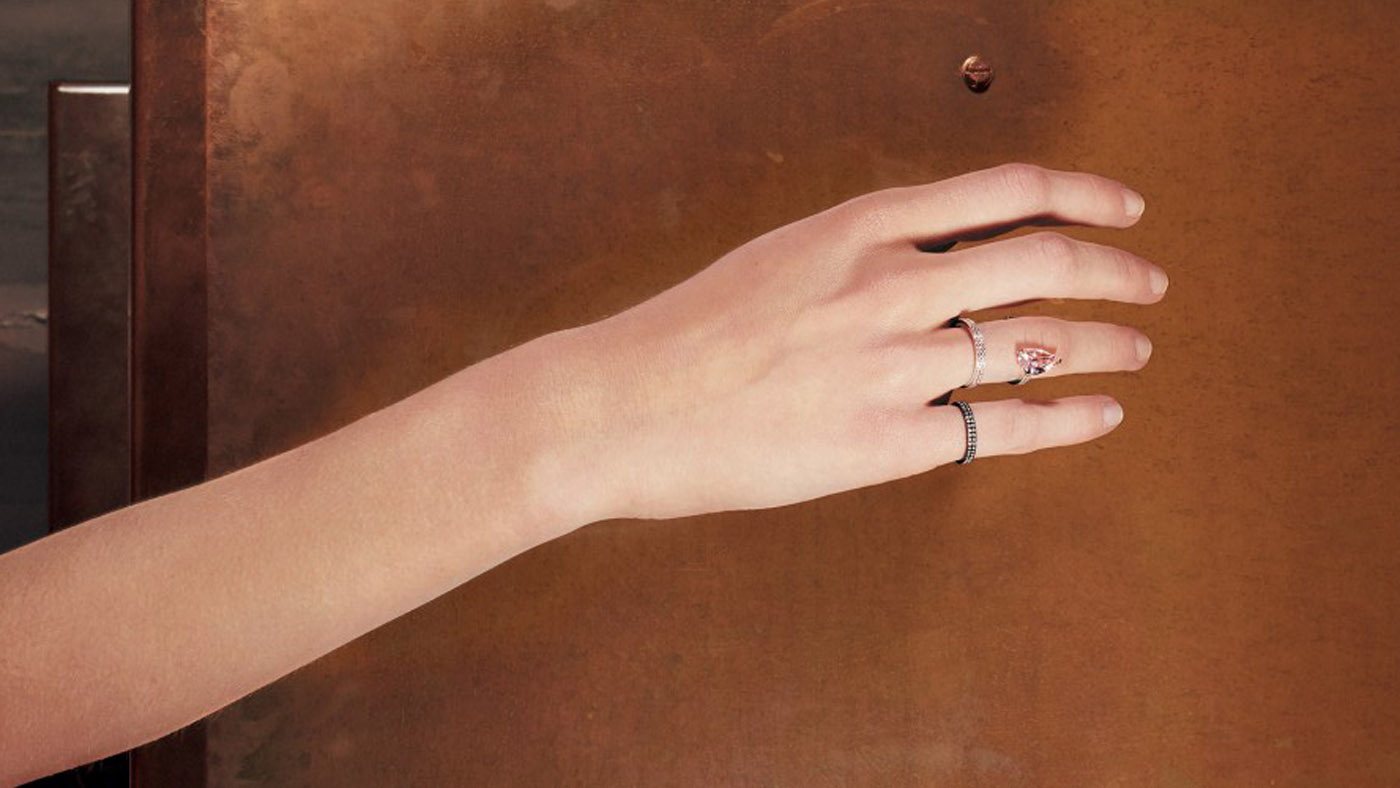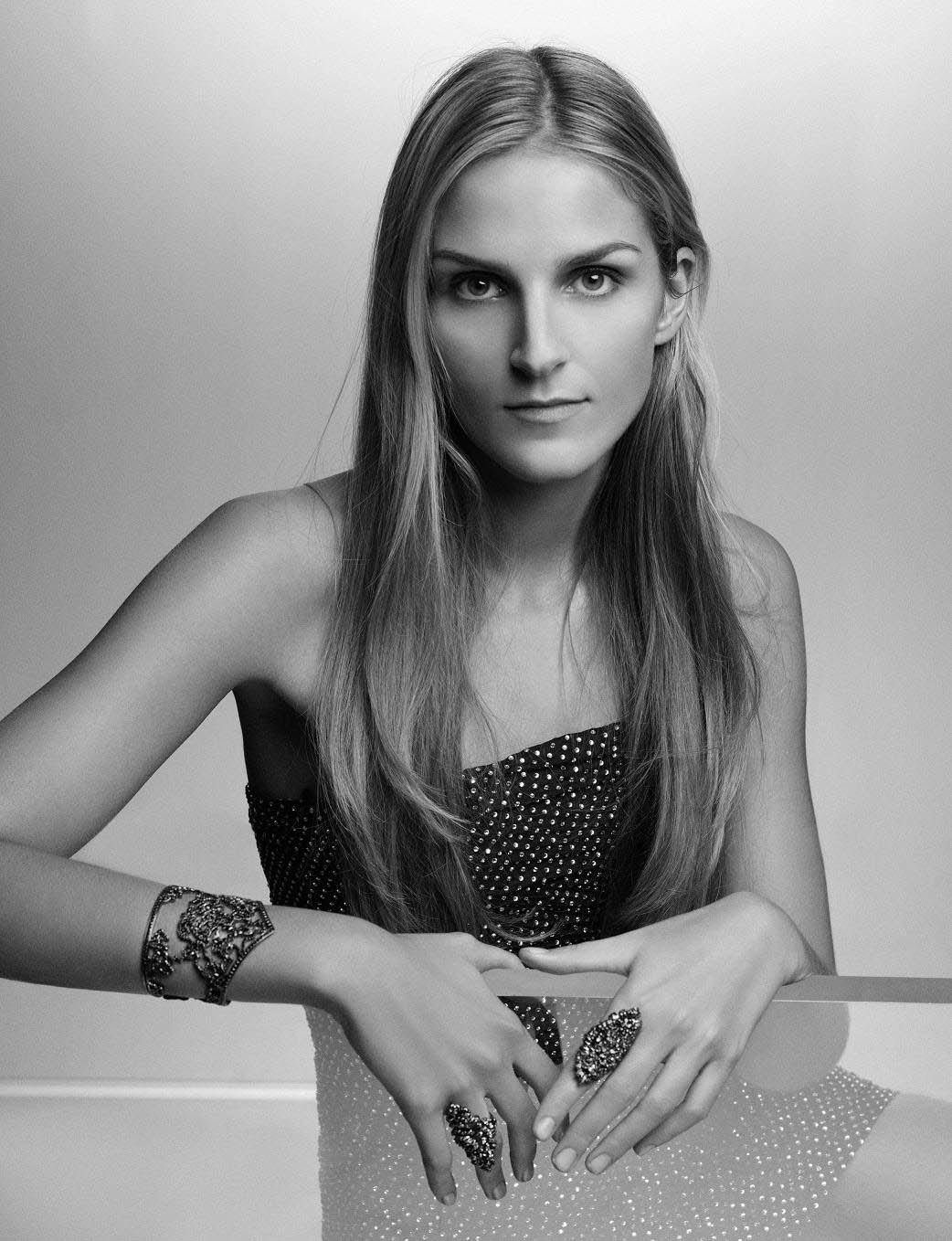Repossi: Why jewellery is more than just a status symbol
Fine jewellery is a form of expression, says Gaia Repossi, the fourth generation of the family to run the business

A free daily email with the biggest news stories of the day – and the best features from TheWeek.com
You are now subscribed
Your newsletter sign-up was successful
Gaia Repossi prefers to describe herself as a reactionary rather than a rebel. Sat at her desk in her Paris office, wearing a crisp white shirt, a loose ponytail pushed to one side and her famous stacked gold rings on each hand, the jewellery designer explains how she is continuously unravelling traditional notions of luxury to fit the expectations and ideals of modern women today.
"When I started here, I thought the only way to do something different with diamonds was to explore unexpected associations," she says. "I saw it as a research field to intellectualise the purpose of jewellery for an intellectual woman who doesn't necessarily buy jewellery to show off or to use as a status symbol."
At just 21, the Turin-born designer took over the storied jewellery house from her father, Alberto, and promptly tore up the rule book. It was a bold step for someone so young and even more impressive given the heritage of the brand, started by her great-grandfather in 1925. Out went the old-fashioned, stone-laden couture pieces; in came sleek, minimalist collections inspired by her love of anthropology, archaeology, art and design. Repossi today champions the idea of fine jewellery as a form of expression for the independent female who's driven and uncompromising in her choices. It's no wonder she has found fans among leading ladies such as Cate Blanchett and Tilda Swinton, as well as Hollywood ingenues including Kristen Stewart and Dakota Fanning. In November 2015, luxury conglomerate LVMH bought a minority stake, proving the niche brand had created more than just a buzz in haute bijouterie.
The Week
Escape your echo chamber. Get the facts behind the news, plus analysis from multiple perspectives.

Sign up for The Week's Free Newsletters
From our morning news briefing to a weekly Good News Newsletter, get the best of The Week delivered directly to your inbox.
From our morning news briefing to a weekly Good News Newsletter, get the best of The Week delivered directly to your inbox.
"I would have never started a jewellery company if [the family business] had not been here. I wouldn't recommend it to anyone," says Repossi, laughing, when asked if she felt daunted taking over from her father. "If there's a structure and a past, you must preserve it. My father and I are similar in many ways – I learnt everything from him – but my ideas come from my young age and a desire to do things differently."
And she has done just that – from pioneering the haute couture diamond ear cuff to popularising pave diamond-stacked rings in a variety of colours, including fuchsia white gold rhodium and black chromium-plated 18k gold, which is apparently used "for guns and certain watches in Switzerland because it is very resistant". Repossi designs can take up to two years to create and during this time, she will experiment with hundreds of variations. Her popular Berbere collection, introduced in 2011 and inspired by the multi-ring tattoos of North African nomads, has more than a thousand sample references, or "systems", as she calls them.

For her Serti Sur Vide ("set on void") collection, the designer used larger stones for the first time. As the name suggests, the pink and clear diamonds appear to float above the skin. "My father was very happy with this collection because he's a stone person," she says. "And for him, the way they're placed on the body is quite revolutionary."
Playing on her love of contrasts, this year Repossi launched her Staple collection: earrings and ear cuffs in black, rose and yellow gold that sit diagonally over the ear like a giant stitch; a straight bolt of brutalism across the body's most arched and swirly appendage. "I like to question beauty," she says. "Is today's woman more masculine as she lives a similar life to a man? Maybe she needs to be more androgynous. I'm attracted to opposites."
A free daily email with the biggest news stories of the day – and the best features from TheWeek.com
Repossi works with many of the same Italian ateliers used by her grandfather and father. "Italians are very good craftsmen when it comes to gold; they have extremely good hands," she says. "I would say 80 per cent of production is done with them. With the French ateliers, it's smaller. That's very French, to go very small. In Italy, the hand is beautiful, but it's very loud, whereas in France it's shy. They're very light in their technique." So, what do the elder generation of craftsmen, particular those who worked with her father on his high-carat statement pieces, make of her edgy aesthetic? "Generally we work with people who are sculptors so for them, it's a beautiful challenge. There's an atelier who has been working for us for the past 30 years and they're very excited by the designs. It's a chance for the ateliers to reinvent themselves, too."
This July, the 30-year-old creative director oversaw another milestone for the jewellery house: the opening of the newly refurbished Repossi flagship, by far the most daring boutique on Paris's historic Place Vendome, which is also home to Cartier, Boucheron and Chaumet. Conceived by Dutch firm OMA, led by architect Rem Koolhaas, the interior is a steely, ergonomic showcase for Repossi's directional designs. Each of its reflective and futuristic spaces, set on three floors, has been conceived with a different shopping rhythm in mind: a fast-browsing area on street level; a first-floor gallery for slower perusing, and a basement salon for one-to-one appointments. As such, the brand is modernising fine-jewellery shopping, boldly shattering stuffy traditionalism across 968sq-ft of prime Parisian real estate.
Gaia Repossi may not be a rebel, but she is a trailblazer. Picking up her papers, the designer ends our talk on an introspective note. "It's important to follow a certain direction and not veer off," she says with a knowing smile. "As Saint Laurent used to say: you must maintain your own style."
Alexandra Zagalsky is a London-based journalist specialising in luxury, art and travel. She began her career working on a cultural guide for English-speaking expats in Paris, where her first major break was an interview with Lionel Poilâne, the late baker of Saint-Germain-des-Prés famed for his signature sourdough loaves. Returning to London in her early 20s, she went on to write for not only The Week but also The Art Newspaper’s Art of Luxury supplement, The Telegraph and The Times, as well as art and design platforms including 1stDibs’ Introspective Magazine and the magazines of the V&A, Sotheby’s and Christie’s. She studied fine art and art history at Goldsmiths, University of London and continues to explore travel journalism through the lens of art, craftsmanship and culture.
-
 Why is the Trump administration talking about ‘Western civilization’?
Why is the Trump administration talking about ‘Western civilization’?Talking Points Rubio says Europe, US bonded by religion and ancestry
-
 Quentin Deranque: a student’s death energizes the French far right
Quentin Deranque: a student’s death energizes the French far rightIN THE SPOTLIGHT Reactions to the violent killing of an ultra-conservative activist offer a glimpse at the culture wars roiling France ahead of next year’s elections.
-
 Secured vs. unsecured loans: how do they differ and which is better?
Secured vs. unsecured loans: how do they differ and which is better?the explainer They are distinguished by the level of risk and the inclusion of collateral